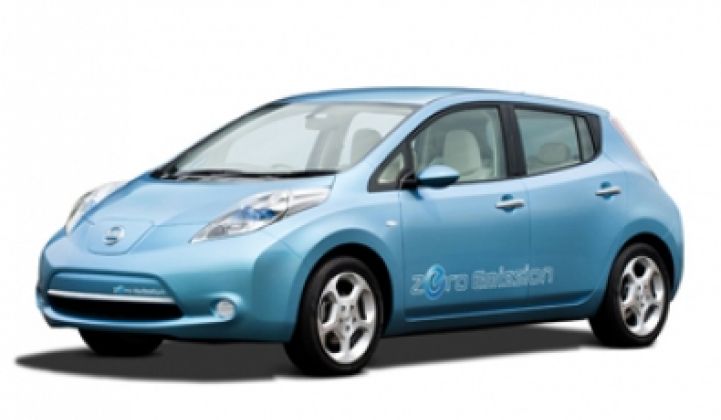How much money will Nissan lose on the all-electric Leaf?
It's been the big question in the car industry. Skeptics have alleged that the company will lose hundreds of millions of dollars. Nissan needs a hit to gain ground against Honda and Toyota, the argument goes, so the company is willing to absorb losses now to gain market share and leadership.
On the other hand, others said that Nissan and NEC have likely managed to squeeze out a lot of the costs related to making the car's battery. The two companies have worked on the Leaf's lithium ion polymer battery, which consists of sheets of active battery material layered on top of each other, for nearly seven years.
Here's our math. The Leaf will retail for $32,780 before federal and state rebates and batteries typically comprise one-third of the cost of electric cars. Right now, conventional lithium ion batteries for cars cost around $900 per kilowatt hour. The Leaf has a 24 kilowatt-hour battery. Under that math, a Leaf battery -- if it were more like a regular electric car battery -- should cost around $21,000. Thus, the Leaf, if it had an ordinary battery, should cost closer to $60,000.
Batteries, however, are expected to drop to around $500 a kilowatt hour by the latter part of 2011, and rumors persist that Nissan is already close to that figure. EnerDel, which makes batteries for Think, can make car batteries for $700 a kilowatt hour, says CEO Charles Gassenheimer. Thus, if Nissan has dropped the price to $500 a kilowatt hour, the battery pack only costs about $12,000. That makes for a $36,000 car. (At $700 a kilowatt hour, the Leaf would be a $50,000 car.)
The Leaf doesn't come out until the end of this year -- production begins in September -- so the company has another five months to incrementally shave prices.
Mark Perry, Nissan's director of product planning for North America (see video with Perry from earlier in the year here), told Reuters at an event (am guessing it was Green:Net) that the car maker is making money with it.
"We are making money at the price that we announced," Perry said. "We priced the car to be affordable. We priced it for mass adoption."
Note that he said "is making money," not "will make money." He may have been misquoted or might be using the Bill Clinton definition of "is," but chances are, he meant what he said. Thus, the company is at least close to being in the black.
Historically, Nissan has actually met most of its goals with electrification. Back in late 2007, scientists at Nissan began to say that the company would get into electrics by 2011. It will beat that mark by a few months.
For further viewing pleasure, here's a test drive of the Leaf.



